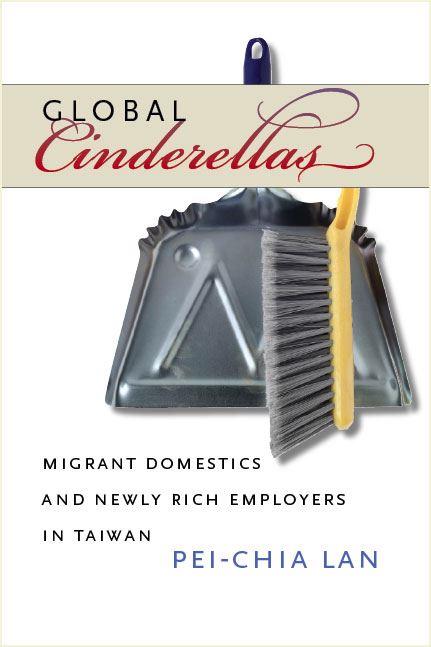COSS has always been the leading school for cultivating talents and producing cutting-edge research in Taiwan. The contributions of NTU college of Social Science to research are widely recognized by international and local scholars. In addition, many research findings are used as the support for policy-making. Brief descriptions of the selected research themes that cut across discipline boundaries can be found below:
-
Sociology Explores, Extends and Experiments New Territories--Science, Technology and Society (STS)
Sociology grows and roars in Taiwan. The indicators include the increasing numbers of undergraduate majors and minors, the enhancing collaboration with other disciplines, the increasing visibility of sociology in social reforms and public debates, as well as the growing popularity of sociological thinking among the general public. I will use the development of medical sociology and science, technology and society (STS) in Taiwan as a showcase to elaborate how sociology explores, extends and experiments new territories.
For the past 20 years, sociology has actively participated in newly emergent interdisciplinary fields including gender studies, cultural studies, and STS. Sociologists often actively participate in academic building of these new fields, and then bring back the new perspectives into sociology. Take STS as an example. STS as a new discipline started to emerge in the West around 1960s, but did not travel to Taiwan until 1990s. Thomas Kuhn’s The Structure of Scientific Revolution was translated and published in Taiwan in 1994. In 1998, Taiwanese Journal for Philosophy and History of Science decided to rename its title to Taiwanese Journal for Studies of Science, Technology and Medicine to incorporate STS perspectives, as well as the involvement of sociologists and social scientists in general. Since early 2000s, with some governmental funding to promote new academic fields such as STS, more efforts of community-building of STS came forth. Sociologists have been actively involved with it. The first meeting of the newly Taiwanese STS society was held at the Department of Sociology, National Taiwan University in 2007, possibly indicating the affinity of sociology and STS. Today, almost the major sociology department offers STS as selective courses, unseen ten years ago. The tendency to focus on social engagement and making of real utopia from sociology influences STS in Taiwan to associate it with reform and activism. For example, a group of sociologists-lead team has been promoting the deliberative democracy since the mid-2000s, which come across the important theme of public participation/engagement/production of science and technology in STS. The mutual benefits (rather than competition) of sociology and STS gives the older discipline new inspiration and the new discipline solid foundation.
Although Taiwan started STS late, it quickly reflected its specific contribution to the global world of knowledge. The birth of the English journal East Asian Science, Technology and Society (EASTS) shows the reflection. EASTS, founded in 2007, is the first English journal that aims to promote Science, Technology and Society (STS) studies from and to the East Asian and worldwide STS. It is an interdisciplinary quarterly journal based in Taiwan, and coedited by editorial boards in Japan, Korea, and the West. EASTS is currently published by the prestigious Duke University Press, and has gained international recognition and acclamation.
-
Globalization and Migration

Increasing significance of new immigration to Taiwan since early 1990s has brought a quick accumulation of social scientific knowledge on newcomers in Taiwan. Viewing immigration as ”strategic research materials” to stimulate new research insights, our research concentration aims to establish the external linkages of immigration studies and other social scientific fields. We have continued to theorize findings from immigration studies and see how they reflect Taiwan’s society as a whole, the old concerns and new issues. The most fruitful results of immigration research stream by Social Science School at NTU are as follows:
-
Political economy of immigration:
Taiwan state adopts immigration policies that differentiate entry and residing status among foreigners with different class background to resolve the contradiction of two circulation regimes-the free flow of trade and capital, and the restricted mobility of people. By introducing and implementing foreign workers policy, Taiwan state expresses its very fundamental ideologies related to nationalist politics, on the one hand, striving to be separated from Chinese identity, and on the other hand, maintaining ethnic homogeneity.
-
Taiwan's path of moving towards multicultural society:
New immigrants have been racialized in a social process through which groups are marked by physical or cultural differences. Such differences become naturalized as essential qualities to be discriminated upon.
-
The Making of illegal migrants:
Migrant contract workers are trapped in a circumstance of “legal servitude” as opposed to the situation that undocumented migrants gain higher wages and enjoy enlarged freedom. Three major mechanisms of control in the guest worker system contribute to such “reverse” situation: quota controls and other rules that render migrants transient and immobile; aggravated competition among recruitment agencies; and deprivation of the freedom for workers to transfer employers freely.
-
Migration and care regimes: comparative approach in East Asia
In East Asian countries, there is a sudden increase demand for care workers, when care is moved from private household to public and/or market sphere. The sudden influx of demand for care workers put pressures on individual households who in turn press the state to respond. Regardless of variations of policies adopted by different care regimes, families and states in East Asia have to find new labor supply to fill the gap of need. One of such streams of supply is constituted by immigrants of old and new. Our research highlights that states with less comprehensive social welfare programs such as that in Taiwan are inclined to employ more migrant care workers as opposed to local workers